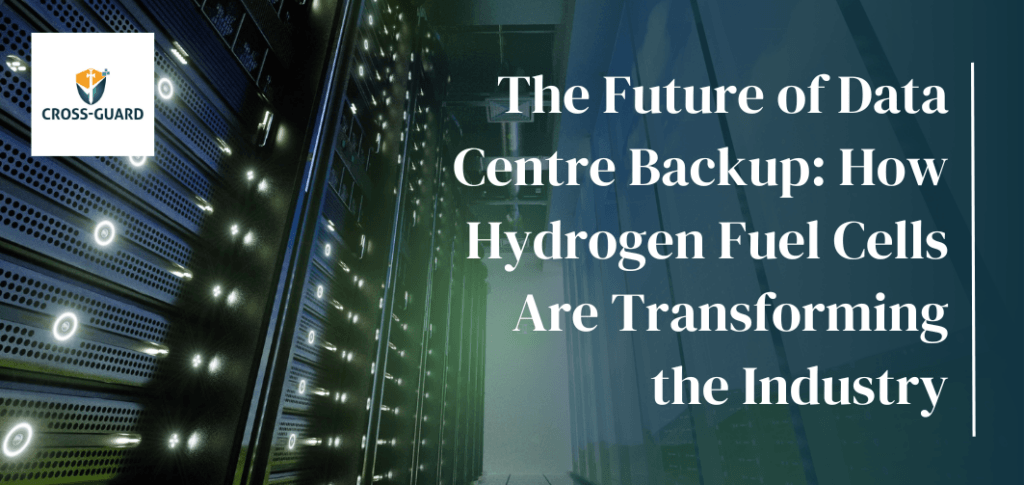The Future of Data Centre Backup: How Hydrogen Fuel Cells Are Transforming the Industry

As data centres are using a growing portion of the globe’s energy, their strategies for achieving net zero must take into account more eco-friendly ways to generate power. Utilising low-emission hydrogen for energy storage might be the solution that data centre operators are currently evaluating.
Generally, those who manage data centres are dedicated to reducing carbon emissions and moving towards achieving net zero. The majority of data centres depend on green energy for their main electricity source by entering into Power Purchase Agreements. However, the typical method for generating power during their downtime and during maintenance is not very eco-friendly. When power is lost, data centres activate their collection of on-site diesel generators.
As the world progresses toward net-zero emissions, it’s crucial to slowly phase out diesel and other hydrocarbon-based fuels. As a result, data centres need to find an eco-friendly alternative for backup power. There have been reviews conducted that reveal a possibility of hydrogen being key in a future that’s carbon-neutral for data centres.
The desire to employ hydrogen, generated from energy sources that have been carbon-neutral or renewable, as a substitute for diesel backup generators, and in the long term, as a main source of electricity for data centers, has increased over the last several years.
The feasibility of hydrogen is set to rise significantly in the near future, thanks to advancements in transportation and storage technologies. As nations refine their plans for hydrogen use, it’s probable that the cost of scaling it up will decrease, lowering the upfront costs needed for data centres to transition.
The advantages of using hydrogen fuel cells are their high efficiency, silent functioning, and eco-friendliness, along with their adaptability, dependability, and ability to expand. Nevertheless, this doesn’t imply that hydrogen fuel cells are without their difficulties. Challenges associated with hydrogen fuel cells include their sensitivity to temperature, financial concerns, safety issues, and the problem of hydrogen escaping.
It remains to be seen if hydrogen fuel cells will become the next eco-friendly option for fuel. At present, further studies are needed to confirm that hydrogen is as green as it seems. Several groups are exploring the use of hydrogen fuel cells to evaluate their potential. For instance, Microsoft and Plug, a top manufacturer of hydrogen fuel cells, are aiming to develop a fuel cell setup capable of generating three megawatts of energy, sufficient to operate 10,000 servers.
Should hydrogen fuel cells become more technically robust, cost-effective, and widely accessible, they could serve as a feasible solution for environmental protection surpassing that of diesel or natural gas. Currently, data centre managers aiming to embrace greener technology should monitor market developments prior to making a decision on hydrogen fuel cells.
SHARE
DOWNLOAD A COPY OF OUR BROCHURE

GET A QUOTE
Get a Quote Form
"*" indicates required fields
